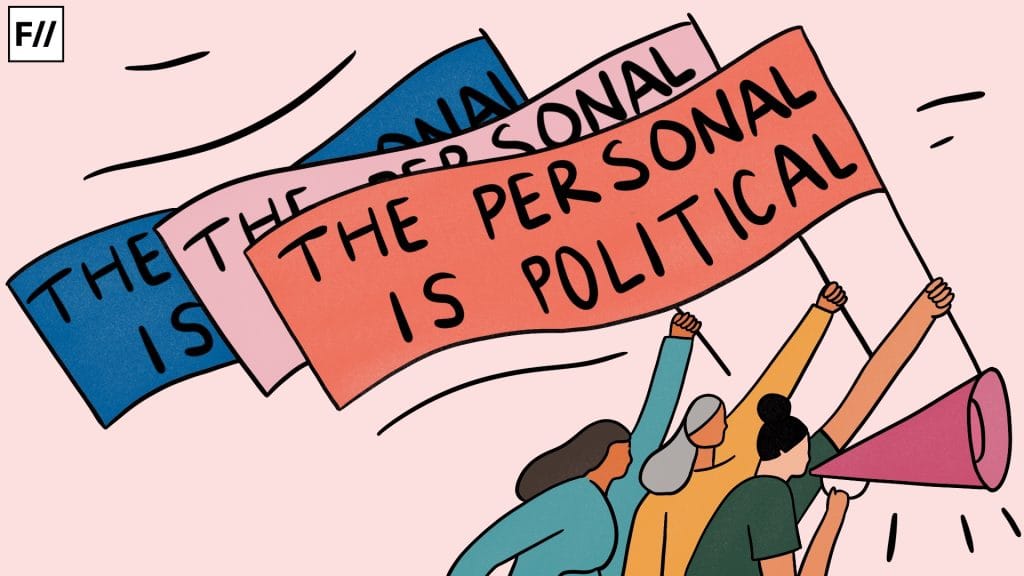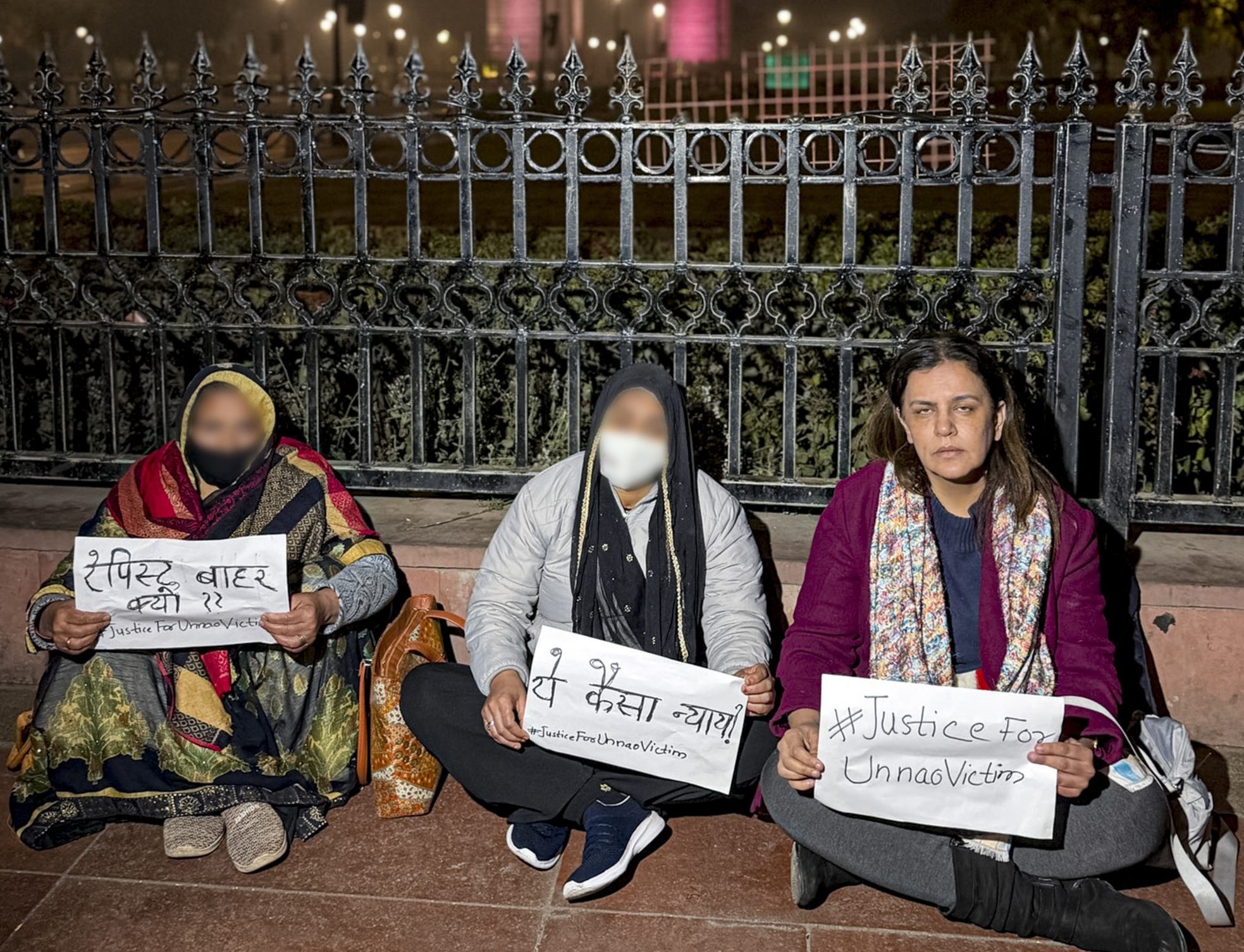‘If you say you can’t work late at night, you are automatically asking us to hire a male employee instead of you,’ mentioned X, an employer to a 21-year-old young job aspirant during a job interview. X had applied for a media job requiring her to work night shifts from the newsroom, when she asked if the media house provides any cab facilities to employees for night shifts the employer immediately assumed and implied that she didn’t want to work night shifts at all.
‘This is the kind of job market we enter into with absolutely no regard or concerns for employee’s safety and then these organisations call themselves a feminist institution.‘ Disappointed in the company’s hypocrisy in mission and actions, she felt a complete disregard for the safety of employees working at night in the company, so she decided to withdraw her application. This case is pretty common. This instance is just an example of working conditions in the formal sector. This situation is not even the tip of the iceberg for workers in the informal sector.
In India, women continue to face such discrimination as job seekers because of their gender. Sadly, this discrimination is reinforced even by the laws. According to a report analysis by India Development Review (IDR), more than 150 laws limit or straightaway prohibit women’s employment in certain industries. For instance in the generation of petroleum, manufacturing of oils, rechargeable batteries, and establishments selling or serving liquor, especially during night-time.
Women’s work restricted during the night in factories
One of the most cited laws that limits women’s employment is the Factories Act of 1948, particularly its provisions around night work. Under this law, women are generally prohibited from working in factories between 7 p.m. and 6 a.m. if certain conditions set as necessary for working aren’t met. The Act seeks to protect women from what is historically viewed as hazardous working conditions. Still, it also has the effect of restricting their access to certain job opportunities, especially in industries that operate around the clock.

Similar to these laws even some courts in India have at times limited women’s employment in the face of protecting them from sexual violence and the physical dangers of working at night or for long hours. According to IDR’s report, no Indian state allows complete freedom for women to work in factories at night. Bihar and Rajasthan continue to prohibit women from working at night in factories. West Bengal does for working at night in commercial establishments like shops, banks, restaurants, etc. The list goes long. However, the question is even when the states allow women to work at night by laws that take a call to act towards banishment of such prohibitions, would it be sufficient to ensure employers from discriminating while hiring? Would it also ensure that employers continue to provide those precursory necessary conditions for work?
Moreover, while provisions are taken for providing a safe working environment inside the office during working hours, provisions for ensuring that workers continue to stay safe while commuting back from work are equally essential. Take the case of the 21-year-old job aspirant in the beginning. However many employers consider these precursories as a burden on their company.
Vague laws confuse both employers and workers
Even during the recent discourse around period leaves, the State defended the arguments around not providing any leaves as they would only discourage employers from hiring more female employees. Such reasons when mentioned by the State itself, only propagate discriminatory laws and hiring practices. States when removing such prohibitions have done it only in parts. For instance, in 2020, Himachal revoked the exemption for women working night shifts in fish canning and curing industries for about three months. It completely left both factory owners and female employees in the lurch. Viruses don’t just stop propagating at night or distinguish between the sexes. Hence, this move by the Himachal Government was very bizarre and unclear. It only discourages more women from participating in the paid economy confusing both employers and employees.
Even though the 2020 amendments in labour laws, exempted some such prohibitions of women’s work at night, including codes on journey allowances, umbrella laws intended well also don’t ensure much in terms of bridging this wide gap already created in the paid economy.
Industrial Revolution and the laws that limit women’s work
Before the Industrial Revolution, most work had to be halted at sunset. By 1896, most mills adopted electric lights and machinery that could run around the clock. From then even though the working day of men increased from 12 to 16 hours, women remained capped at 11. In 1921, India cemented these restrictions by adopting International Labour Organisation Conventions prohibiting the employment of women in factories between 7 pm and 5 am.

Between 2015-21, Haryana granted 592 exemptions to 212 firms for employing women in night shifts. To grant these exemptions, employers and administration have to hire again and scrutinise applications to comply with the long list of conditions. Apart from the Factories Act mentioned earlier, The Plantation Labour Act, of 1951, also prohibits the employment of women in plantations between 7 pm and 6 am. All states in the index follow this whip, unless the plantation gets approval.
The Contract Labour Act, of 1970, empowers state governments to prescribe conditions for contract labour to be gainfully employed. Other laws like The Inter-State Migrant Workmen Act, of 1979, which is supposed to empower states to prescribe conditions for women’s employment have the same case. Only Gujarat and Kerala allow female migrant workers to work at night in all situations. In all these laws, states make exceptions for women working as midwives and nurses or in creches, because these professions are typically considered ‘female jobs.’
Women still forced to choose one- career advancement or family
On one hand, holding women hostage to sunset curtails their options to earn overtime pay and make career advancements, while permitting them the freedom and liberty to work at night also comes with paying the price of jeopardising safety and security. Employers only feel burdened spending more on ensuring benefits for night shifts. Moreover, this also allows CEOs like Narayana Murthy or Daksh Gupta a chance to exploit their workers by insisting on a 70-80-hour week. With zero work-life balance and no time for personal life or recreation, employees succumb to either moving out of their jobs or worsening their mental and physical health.

The impact of this is eventually doubled when it comes to women employees considering the marriage, childcare, and unpaid housework responsibilities they are already occupied with or socially obligated to fulfil. A report by the International Labour Organisation supports this argument, as India has more than half, i.e. 53 per cent of women outside the labour force.
While unpaid care responsibilities are one of the major reasons cited in the report, such laws and state regulations regarding where women can or cannot work, the number of working hours, healthcare benefits, and others only limit women’s chances of participating in the paid economy more.
About the author(s)
As an independent journalist, writer, and aspiring documentary filmmaker, Stuti covers about social and political issues. Interested in development journalism she also highlights issues on human rights, gender, education, unemployment, law and others. She aims to start her own news media initiative in the future to transform the way development is covered and discussed in the news.





